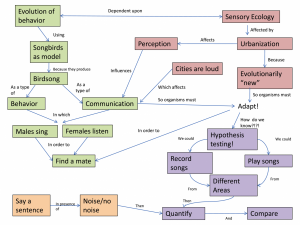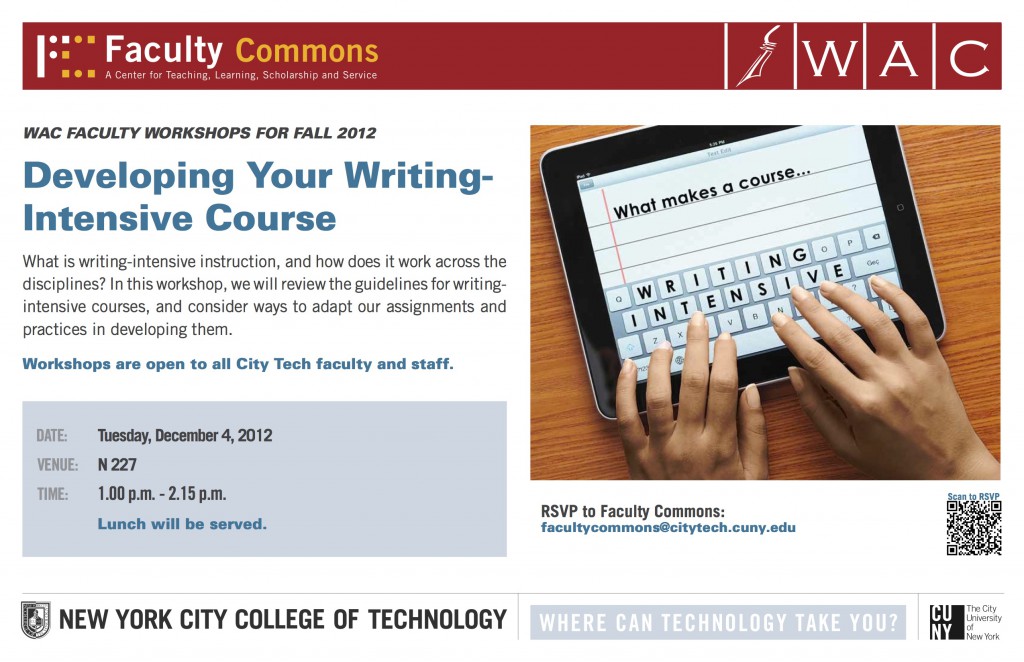Earlier this year, WAC fellow Zak Aidala wrote an excellent blog post about using peer review in the college classroom. On November 12, WAC fellows Melanie Lorek and Heather Zuber led a full workshop expanding on peer review, introducing us to their “eight great” strategies to make peer review work for faculty in the classroom. The PowerPoint and handouts from the workshop are provided below.
Workshop participants also got a chance to role play a peer review ourselves, letting us see firsthand the benefits of using peer review. Heather and Melanie also helped to dispel a variety of myths and misconceptions about peer review.
After acknowledging some common misconceptions about peer review, the participants brainstormed a list of benefits and advantages to peer review. Most groups came up with a similar list: students feel less pressure when being reviewed by their peers, students are forced to reflect on their writing, students are encouraged to feel autonomy as writers, it saves time for the professor when assessing writing, and it allows shy students to participate.
Melanie and Heather then introduced their “eight great strategies” for effective peer review. While you can look in detail at all of them in the PowerPoint presentation below, their first and most important aspect was to focus on only a single feature of a draft, such as the thesis, the supporting evidence, topic sentences, etc., rather than having reviewers look at global revisions. This helps to avoid aimless peer reviewing, or confused questions of “what am I supposed to do?” by the students. Using a handout with specific instructions and questions aids this process.
We then put this theory into practice, breaking into groups and peer reviewing only the thesis of a few different student papers. While each paper had a variety of higher- and lower-order concerns, by focusing on just one aspect, the thesis, we were able to give good recommendations to the hypothetical writer. Heather and Melanie also provided us all with samples of handouts that we might use for a variety of different peer review activities.
Click here for the PowerPoint, and click here for the handouts.
Did you attend the workshop? What worked for you? What would you have found more useful? Feel free to comment below!
Our next workshop is on Effective Grading Techniques, and will be held on December 10, 2013, at 1pm in Namm 226. Lunch will be provided!








